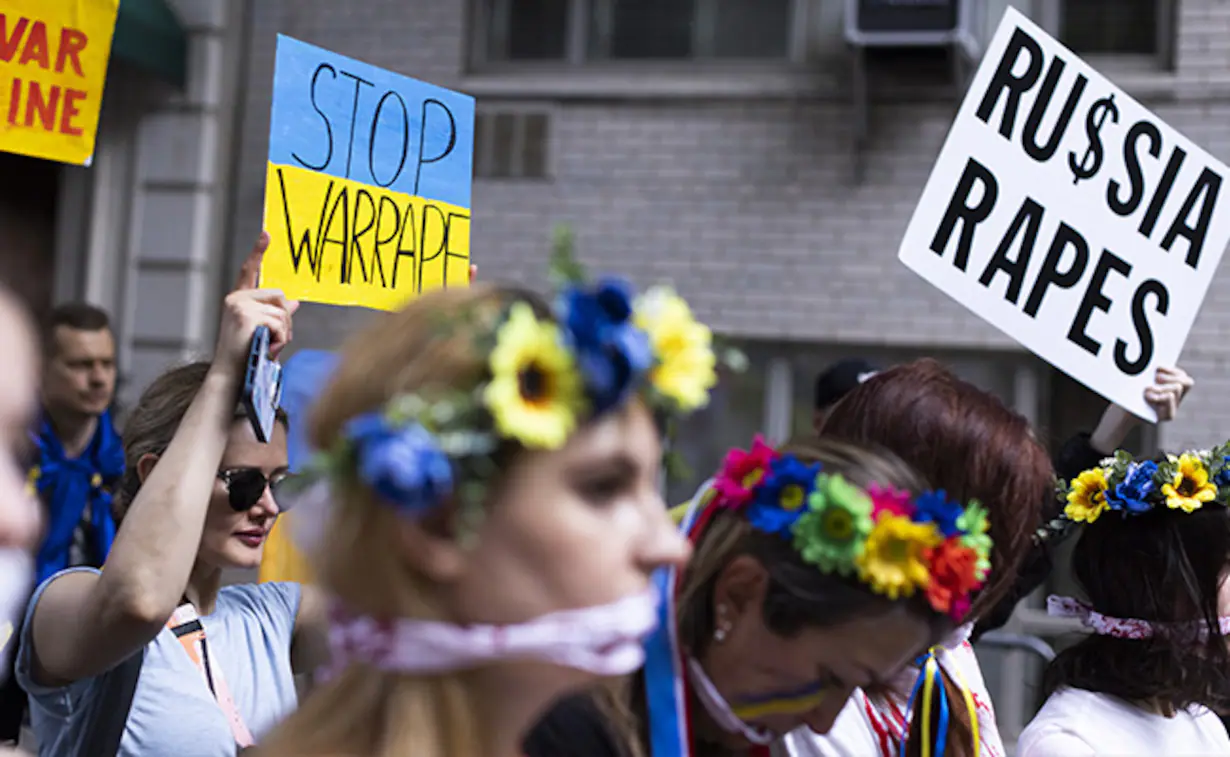KYIV: When the war erupted in Ukraine and reported that Russian soldiers used rape when war weapons began to emerge, Yulia Sportshsh was not sure he was the right person to help.
Encouraged by partners in Divchata, a small NGO that mainly works on health education for girls, he made a hotline in April to inform and support the victims.
Ukrainian officials as high as Volodymyr President Zelensky accused Russian troops of being widespread and systemic sexual harassment and divchata were ready to receive telephone calls from the victims.
But after three months of war, the phone almost did not sound at all.
There is still a very large stigma. There is this idea that the victims might have brought,” Sporysh told AFP, explaining why people might not progress.
We got a request from relatives and from volunteers,” he added, “but not directly from the victim”.
Moscow’s invasion has spurred a wave of allegations of sexual violence committed by his troops in Ukraine.
Zelensky said in April that Russian troops who resigned after trying to catch the capital of Kyiv had left the “hundreds” of rape victims behind them, including children.
AFP has spoken to at least one woman in the southern country who said she was raped by several Russian soldiers.
Kyiv announced this week that they began the first legal process against one of Moscow’s soldiers for sexual violence.
‘Too shy’
However, the activists who were in charge of helping the people whose lives were destroyed by the first rape had to persuade them to break their silence.
“The victim, mostly, is not ready to report to law enforcers and some of them are not even ready to receive special medical treatment,” said Yuliia Anasova, a lawyer with La Strada.
The famous rights group, which also has a telephone number for the victims of the rape of war, has received more than a dozen calls in connection with 17 people including one person.
“He said he was too embarrassed to see a doctor,” Anasova told AFP.
Every person who reaches out says that they are raped by Russian soldiers, most of them in their own homes, he said, but only three who submitted an official complaint.
“They are even not ready to go to the police instead of looking for medical treatment,” Anasova said.
The lawyer said that Ukrainian investigators who were often trained new to modernize their work, but still subdued victims for several interrogations and medical examinations that violated international recommendations.
The dedicated police unit that has worked in the Kyiv region has identified 13 victims of alleged sexual harassment by Russian army, said Deputy Minister of Home Affairs Kateryna Pavlichenko.
‘Information, not emotions’
Military Psychologist Natalia Zaratska believes it is still too early for the police to go to look for victims.
It would make more sense to talk to them in six months, when they have a better grip on their memories,” he told AFP. “For criminal investigations, you need information, not emotions.”
However, Zaratska believes there is a “urgent” work that must be done. He understands the victims need support but he also believes “they will not come to us”.
“So we have to go to them.”
That’s why he left at least three times a week to Bucha, outside Kyiv, a city whose name is now synonymous with the accusation of cruelty carried out by Russian army, including the execution of summaries.
The conversation was silent about sexual violence committed by Russian soldiers to absorb all corners of the city where residents were found to be shot dead with their hands tied behind their backs after their invaders retreated.
“A doctor told me that for one month, the ambulance only picked up a woman who had this problem,” the 45 -year -old Volodymyr plump man told AFP in Bucha.
Andrei Halavin, a priest who led the local Orthodox Church, navigated the best way to direct conversations with believers.
Best not to talk about it ‘
“The best is not talking about it,” he told AFP in Bucha, wrapped in a black cleric. “People must continue their lives”.
He tried to convince the congregation that the victims did not violate their faith.
“I have to tell them that it is not a sin that is raped.”
Zaratska, a military psychologist, said he began to go to Bucha to talk with residents about their experiences about Russian work and immediately referred to rape victims.
He said the volume of complaints means that three psychologists who work in the region are not close enough. “12 or 16” is needed, Zaratska he said.
Once again, he said, the victims were often hesitant to take care of the subject of their experience.
“Only when they were around someone who understood that during the war, rape was a form of torture,” he said.
He said they also needed to be convinced that their testimony would be handled with sensitivity.
Some officials controversially make public graphic details about the accusations of rape and sexual harassment, including the Ombudswoman Human Rights Ukraine who left the position after describing an incident in which a young girl was violated with kitchen equipment.
Promoted to the latest songs, only at jiosavn.com
